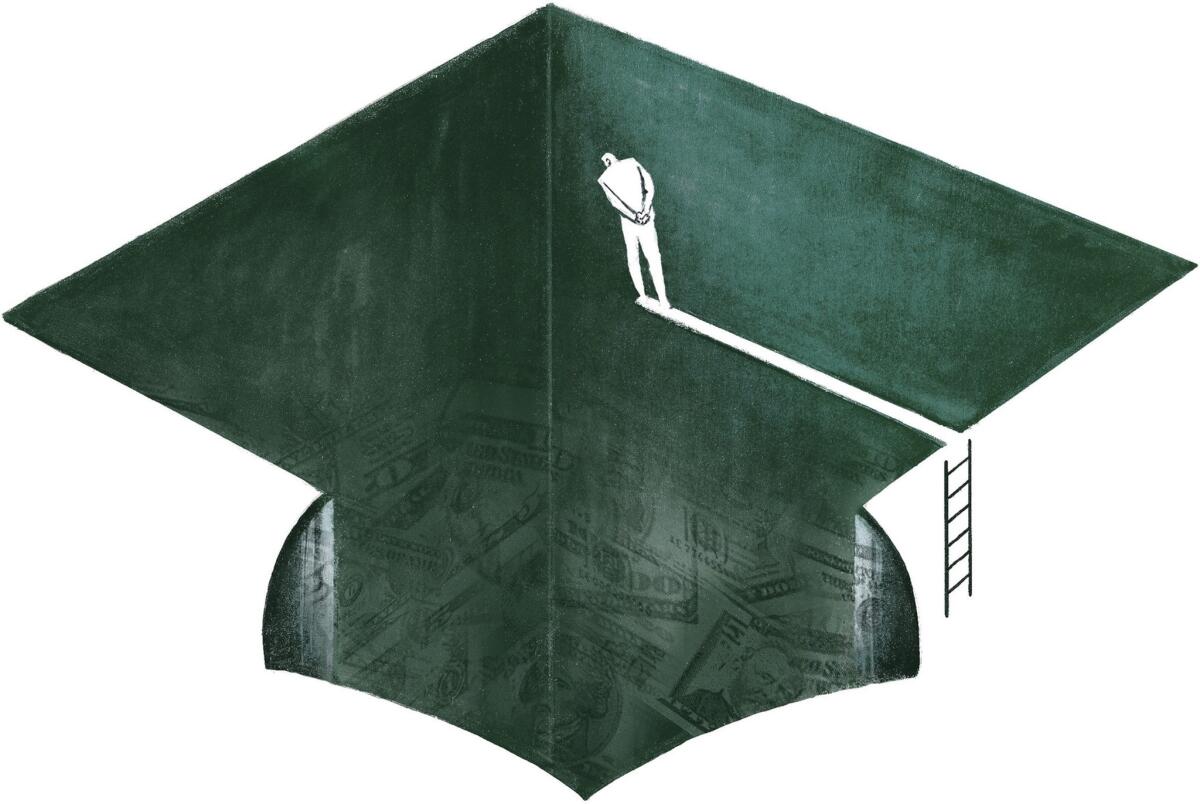Consumer agency warns of student loan defaults if co-signer dies

A new report released Tuesday by the Consumer Financial Protection Bureau is warning borrowers of a catch that is pushing private student loans into default even if the loan is in good standing.
The federal consumer agency said that borrowers complain of being blindsided when their student loans automatically default when co-signers -- usually parents or grandparents -- die or fall into bankruptcy. When this happens, lenders demand that the full amount be paid immediately.
Though the federal consumer agency isn’t alleging lenders are doing anything illegal, it is urging lenders to take steps to avoid default. Lenders could allow the borrower time to find another creditworthy co-signer, the report said. It’s also urging greater transparency.
“Private student loan servicers should assess whether they are providing clear and accurate information about co-signer release and other benefits,” said Rohit Chopra, the agency’s student loan ombudsman.
The consumer agency’s mid-year report showed that it received more than 2,300 complaints from consumers with private student loans that included such issues as poor communication tactics and continued attempts to collect debt not owed.
It focused on the issue of automatic defaults triggered by a co-signer’s death or bankruptcy filing because they appear to be generating a growing number of complaints, the agency said.
More than 90% of all private student loans are co-signed, up from 67% in 2008, according to an estimate by the federal government, likely contributing to the rise of complaints.
The report did not focus on federal student loans, which typically do not require a co-signer. Data from the Federal Reserve Bank of New York found that the amount of student loan debt -- private and public -- has tripled in the past decade, surpassing more than $1 trillion recently.
Co-signers are typically able to reduce the interest rate for a loan because young borrowers often don’t have a credit history, the report said.
The automatic defaults triggered by a co-signer’s death or bankruptcy have the potential to harm a borrower’s credit rating, making it difficult to pass employment screenings or access other forms of credit.
“Inclusion of these clauses may be rational for a creditor,” Chopra said. “However, the practice of accelerating a loan and immediately demanding the full balance upon the death or bankruptcy of a co-signer on a loan that is otherwise performing warrants review by investors and senior management.”







